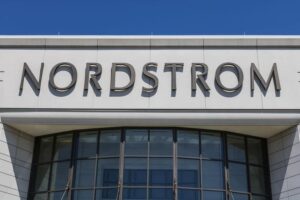 The silver lining of the so-called Retail Apocalypse: retailers are innovating again. Some retailers, such as Ulta and Fabletics, are leveraging loyalty and data to fight back against the shift to online shopping. Others are rethinking the very concept of brick-and-mortar retail. Enter luxury department store retailer Nordstrom, which plans to open a concept store in Los Angeles that will, if successful, reinvent the customer experience for Nordstrom shoppers. While the concept sounds intriguing, the news has us wondering: How will the retailer differentiate the experience for its best customers?
The silver lining of the so-called Retail Apocalypse: retailers are innovating again. Some retailers, such as Ulta and Fabletics, are leveraging loyalty and data to fight back against the shift to online shopping. Others are rethinking the very concept of brick-and-mortar retail. Enter luxury department store retailer Nordstrom, which plans to open a concept store in Los Angeles that will, if successful, reinvent the customer experience for Nordstrom shoppers. While the concept sounds intriguing, the news has us wondering: How will the retailer differentiate the experience for its best customers?
By Rick Ferguson
The new store concept, dubbed Nordstrom Local, will open on October 3 in West Hollywood and see the traditional Nordstrom footprint reduced from 14,000 square feet to 3,000. The key to reducing the footprint: no inventory. While the store will in include apparel for customers to try on, the focus will be on the store’s staff of “personal stylists” who will consult with shoppers, help them try on items in one of the store’s eight dressing rooms, guide them through the sales process, and then help them source their orders through central Nordstrom locations or via the company’s ecommerce site. The site will feature a central “meeting space” and a beverage bar where customers can get their drink on while waiting their turn to meet with a stylist.
According to the Nordstrom press release, services available to Nordstrom Local shoppers will include:
- Bookings with free personal stylists made online, over the phone or in-person
- On-site alterations and tailoring
- Manicuring services
- Same-day home delivery
- Buy online, pick-up in store orders
- Curbside pickup
- Trunk Club service: Nordstrom Local customers can meet a Trunk Club stylist or pick up or return a trunk
- Nordstrom Style Boards: A new sales tool that allows stylists to create digital boards filled with personalized fashion recommendations and consult with customers via a mobile app
Money quote from Nordstrom Customer Experience SVP Shea Jensen:
"As the retail landscape continues to transform at an unprecedented pace, the one thing we know that remains constant is that customers continue to value great service, speed and convenience. We know there are more and more demands on a customer's time and we wanted to offer our best services in a convenient location to meet their shopping needs. Finding new ways to engage with customers on their terms is more important to us now than ever."
The concept sounds intriguing, and we’ve no doubt that Nordstrom will learn much from testing the high-touch, small footprint store format even if the retailer decides not to expand the concept beyond the single location. With Nordstrom Local’s emphasis on highly personalized service, however, we wonder what impact the concept might have on local members of Nordstrom’s loyalty program? After revamping Nordstrom Rewards from a store credit-based program to a multi-tender program, the retailer saw 3.7 million new members join the program in the following year, and now boasts 7.8 million active members.
Those 7.8 million members represent Nordstrom’s best customers, and account for most of its sales. They’re also desirous of personalized service representative of their status as best customers. Will an elite Nordstrom Rewards member walk into the West Hollywood store only to become frustrated at having to wait for an appointment with a stylist? Will non-members receive the same treatment as longtime loyal members?
Here’s an idea: Should the Local concept prove successful enough that Nordstrom rolls it out to other markets, make Reward program membership a prerequisite for visiting a Nordstrom Local location. The membership requirement will ensure that Local stores function as a lavish experiential soft benefit for best customers, one that Nordstrom’s competitors will be hard-pressed to match. Nordstrom will also be able to leverage multichannel data to develop deep insight on these customers to further enhance and personalized the experience for them. After all, all customers are created equal – but some customers are more equal than others.
Rick Ferguson is Editor in Chief of the Wise Marketer Group and is a Certified Loyalty Marketing Professional (CLMP).




